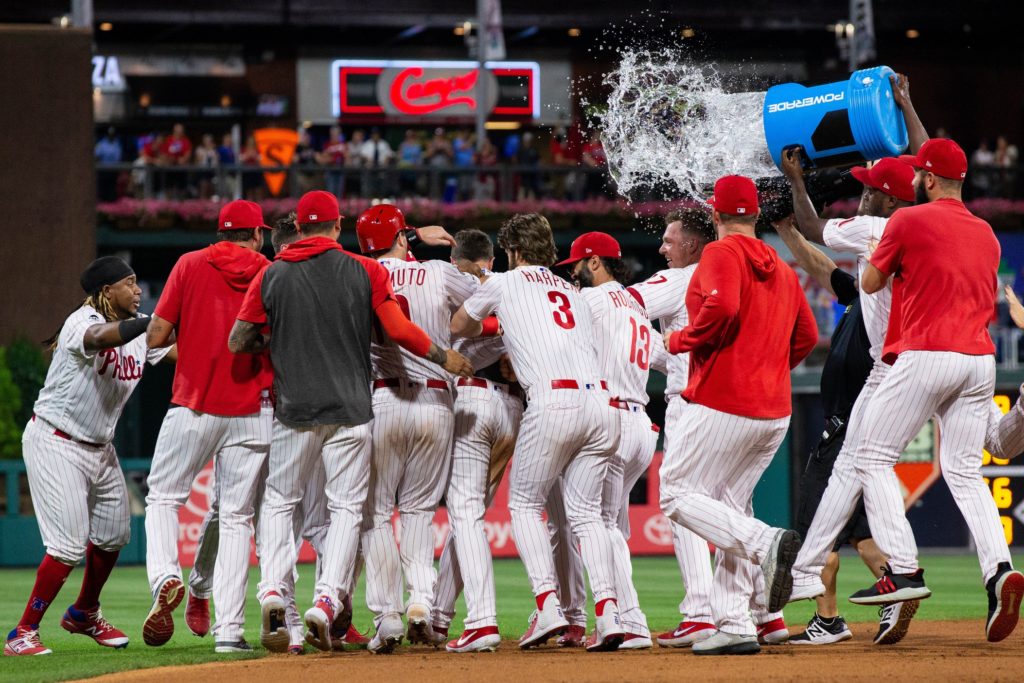Ad Disclosure
Major League Baseball Set to Return With 60-Game Season

Cue the Benny Hill theme music.
Major League Baseball is back, but not because the owners and players had a good-faith negotiation. Instead, commissioner Rob Manfred will institute a 60-game season based on the March 26th agreement between the two sides.
In order to solidify this path forward, the league will need the players to sign off on health and safety guidelines and agree to report for Spring Training II on July 1st, which is eight days away.
By choosing a season of 60 games, the league will pack in about as many games as it can through Sept. 27, the league’s self-imposed cutoff for the regular season.
Additionally, the 60-game season could serve as a buffer against a grievance by the MLBPA, which in the case of a potential implementation has been expected to charge that the league did not fulfill its duty to complete as full a season as possible. The league could file a grievance against the union as well.
Multiple players told ESPN that they expect to agree to the league’s call to report by July 1 and to its health-and-safety protocol, with executive subcommittee member Andrew Miller telling ESPN, “We are ready to get back on the field.”
If the players do, it would end a tortuous path to a return-to-play agreement in a typically confusing way: with the players rejecting a proposal, only to have one of the same length implemented.
So we’re close, but we’re not entirely across the finish line here. Players have to agree to the report date and the health guidelines by 5 p.m. Tuesday night. The grievance remains on the table. Fans seem a little worn out with the entire back and forth, which may be blunting the excitement for baseball’s return.
Let’s get Trevor Bauer’s thoughts:
It’s absolute death for this industry to keep acting as it has been. Both sides. We’re driving the bus straight off a cliff. How is this good for anyone involved? Covid 19 already presented a lose lose lose situation and we’ve somehow found a way to make it worse. Incredible. 🤦🏻♂️
— Trevor Bauer (トレバー・バウアー) (@BauerOutage) June 22, 2020
If there’s going to be a fight the time for that fight is after the ‘21 season when a new CBA is negotiated. 5 years of potential change. We’re doing irreparable damage to our industry right now over rules that last AT MOST 16 months. WTF kind of sense does that make? 🤦🏻♂️🤦🏻♂️🤦🏻♂️
— Trevor Bauer (トレバー・バウアー) (@BauerOutage) June 22, 2020
So we gave up shares of playoff money, eliminating the qualifying offer for 2021, paycheck advance forgiveness, Covid 19 protections, and protection for non guaranteed arb contracts for next year in order to hold on to our right to file a grievance…🤔🤔
— Trevor Bauer (トレバー・バウアー) (@BauerOutage) June 23, 2020
Baseball is back, but is anybody truly excited about the circumstances that led us to this point? Seems like a mixed bag on Facebook and Twitter, and some of the sports radio callers I listened to this morning sounded a bit miffed by the whole thing.
Best case scenario is that a shortened season results in a wild sprint where each game means more than your typical 162-game campaign, the Phillies turn out to be pretty good, and we all forget about the contentious non-negotiation that brought us to this point in the first place.
Fingers crossed.
Kevin has been writing about Philadelphia sports since 2009. He spent seven years in the CBS 3 sports department and started with the Union during the team's 2010 inaugural season. He went to the academic powerhouses of Boyertown High School and West Virginia University. email - k.kinkead@sportradar.com